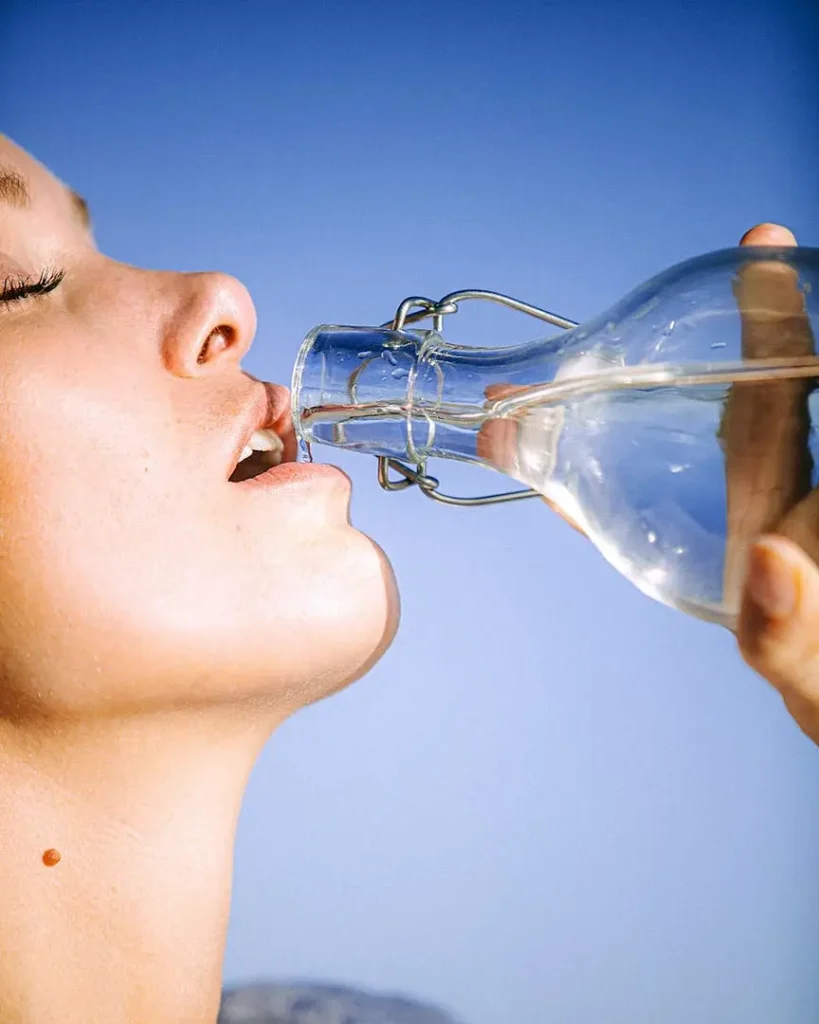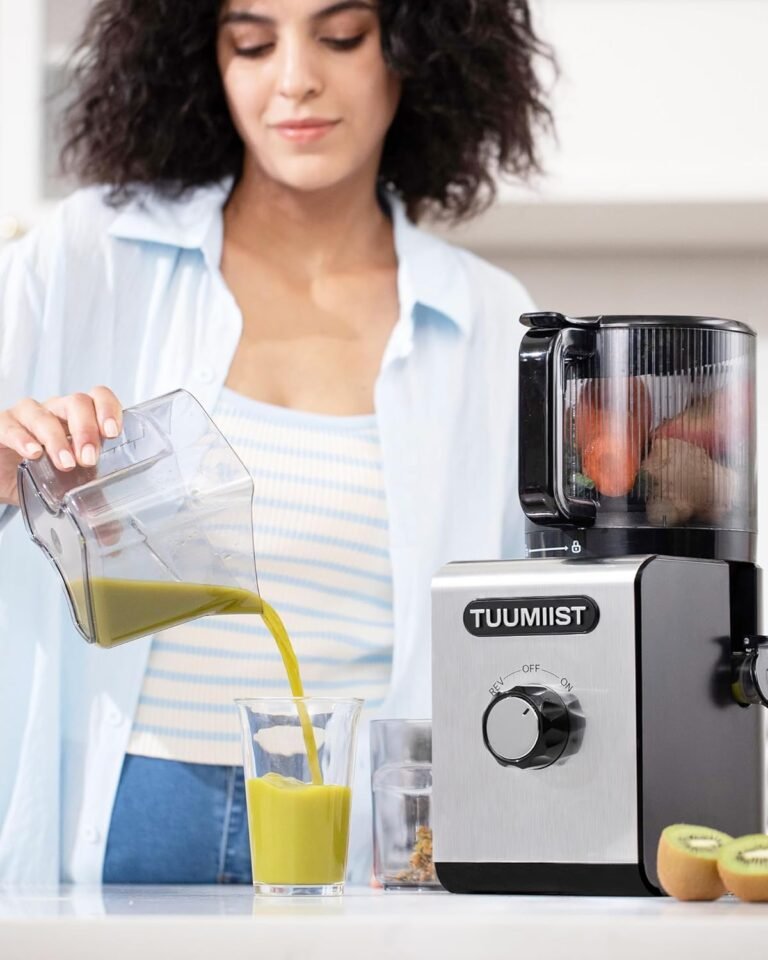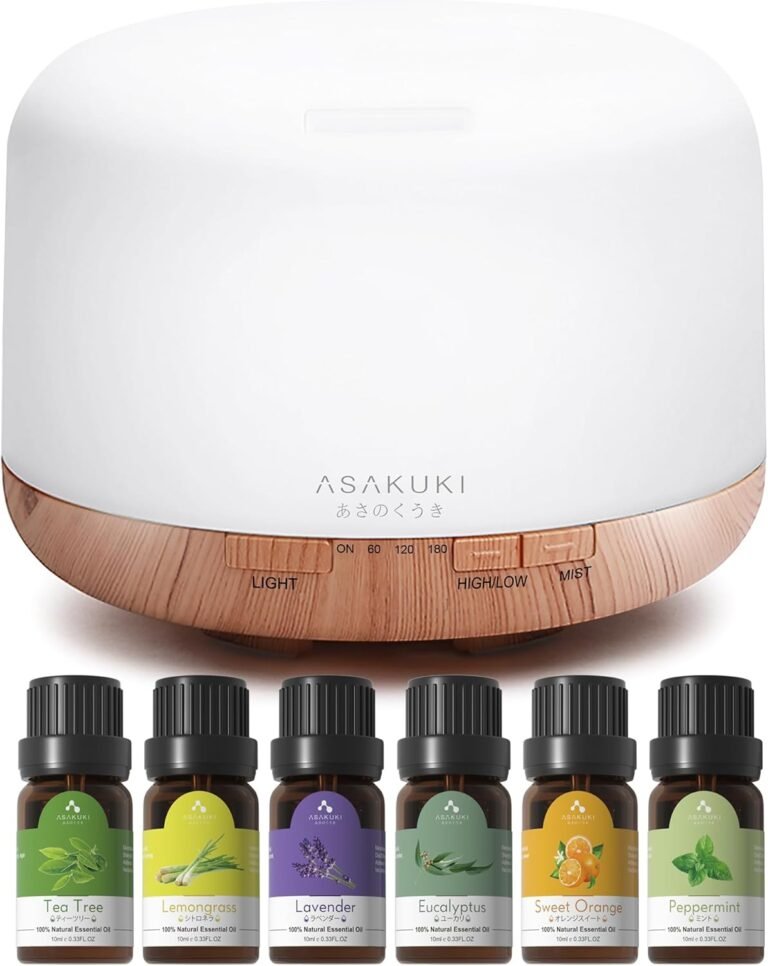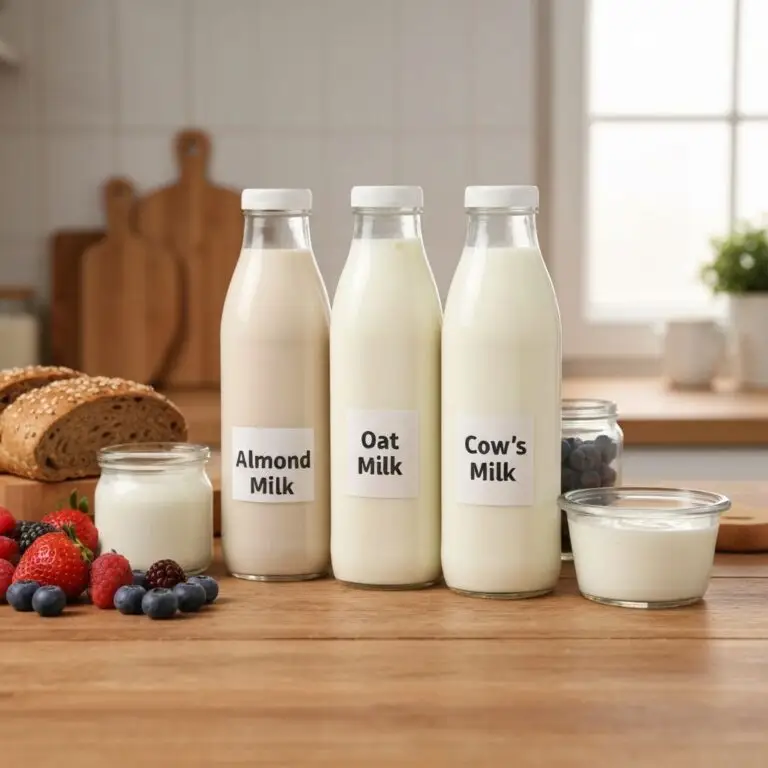[rt_reading_time]
Staying hydrated during fasting is essential for maintaining your health and well-being. Whether you’re observing Ramadan, losing weight, practicing intermittent fasting, or following a religious or health-related fast, keeping your body hydrated is crucial for optimal performance and overall well-being. In this article, we will share expert tips, tricks, and the numerous benefits of staying hydrated during fasting.
While fasting, our bodies go through a series of physiological changes that can affect our hydration levels. Proper hydration not only keeps us energized but also helps regulate our body temperature, aids digestion, improves mental clarity, and supports overall organ function. Yet, many people struggle to stay hydrated during fasting due to reduced food and fluid intake.

To help you overcome this challenge, we’ve gathered valuable insights from experts and experienced fasters. From incorporating hydrating foods into your diet to establishing a proper fluid intake routine, we’ll share actionable tips and tricks that will ensure you stay hydrated and thrive throughout your fasting period.
So, let’s discuss the importance of staying adequately hydrated during fasting and the numerous benefits it brings to your health and well-being.
The Importance of Staying Hydrated During Fasting
Proper hydration is crucial for our bodies to function optimally, and this becomes even more important during fasting. When we fast, whether it’s for religious reasons or health-related goals, our bodies undergo various changes that can affect our hydration levels. It’s essential to understand the importance of staying hydrated during fasting to maintain our overall well-being.
One of the primary reasons hydration is crucial during fasting is because water plays a vital role in regulating body temperature. When we don’t consume enough fluids, our body’s ability to cool down is compromised, leading to potential overheating and discomfort. By staying hydrated, we can support our body’s natural cooling mechanisms and ensure that we remain comfortable and safe throughout the fasting period.
In addition to regulating body temperature and aiding digestion, staying hydrated during fasting is also important for mental clarity. Dehydration can lead to fatigue, brain fog, and difficulty concentrating. By keeping our bodies hydrated, we can maintain mental alertness and focus, allowing us to perform daily tasks and responsibilities effectively.

Staying hydrated during fasting is crucial for maintaining our health and well-being. It supports our body’s natural functions, helps regulate body temperature, aids digestion, improves mental clarity, and ensures that our organs can perform optimally. Now that we understand the importance of hydration during fasting, let’s highlight the crucial benefits of drinking water specifically during this period.
- Maintains hydration: Water is the most effective way to stay hydrated during fasting. It replenishes fluids lost through sweating, breathing and urine production. By drinking enough water, we can maintain optimal hydration levels and keep our bodies functioning at their best.
- Supports detoxification: Fasting is a natural detoxification process for our bodies, and drinking water aids in this process. Water helps flush out toxins and waste products from our system, allowing our organs to function efficiently. It also supports kidney function, which is essential for eliminating waste from our bodies.
- Promotes weight loss: Many people fast for weight loss purposes, and drinking water can support this goal. Water has zero calories and can help suppress appetite, making it easier to control food intake during fasting. Additionally, staying hydrated can boost our metabolism, aiding in weight loss efforts.
- Improves digestion: Drinking water during fasting helps improve digestion by aiding in the breakdown of food and promoting regular bowel movements. It prevents constipation and bloating, ensuring that our digestive system continues to function optimally.
- Boosts energy levels: Dehydration can lead to fatigue and low energy levels. By drinking water, we can maintain our energy levels during fasting, allowing us to stay active and productive throughout the day.
- Enhances mental clarity: Our brain requires proper hydration to function optimally. Drinking water during fasting helps improve mental clarity, focus, and concentration, allowing us to perform tasks effectively.
- Supports overall organ function: Water is essential for the proper functioning of all our organs, including the heart, lungs, liver, and kidneys. By staying hydrated during fasting, we ensure that our organs can perform their functions optimally.
By drinking water during fasting, we can enjoy these benefits and support our overall health and well-being. However, staying hydrated during fasting can present some common challenges. Let’s explore these challenges and discover tips for overcoming them.
Common Challenges in Staying Hydrated During Fasting
While staying hydrated is crucial during fasting, it can be challenging due to reduced food and fluid intake. Many people struggle to consume enough water during their fasting period, leading to dehydration and its associated effects. Let’s explore some common challenges in staying hydrated during fasting and discover tips to overcome them.
- Reduced thirst sensation: While fasting, our thirst sensation may decrease, leading to a decreased desire to drink water. This can make it challenging to consume adequate fluids. To overcome this challenge, it’s important to establish a regular water-drinking routine rather than relying solely on thirst cues. Set reminders or use apps to track your water intake and ensure you’re drinking enough throughout the day.
- Limited access to water: Depending on the fasting regimen you follow, you may have limited access to water during certain hours or periods. This can make it challenging to stay hydrated, especially if you live in a hot climate or engage in physical activity. To overcome this challenge, make the most of the times when you do have access to water. Drink a sufficient amount during non-fasting hours to compensate for the restricted intake during fasting.
- Lack of variety: Fasting can sometimes lead to monotony in the diet, making it difficult to consume enough fluids. If you find yourself getting bored with plain water, try infusing it with fruits or herbs to add flavor. You can also consume hydrating foods such as fruits and vegetables to supplement your fluid intake.
- Dehydration from caffeine and sugary drinks: During fasting, it’s important to avoid caffeine and sugary drinks, as they can dehydrate the body. However, if you’re used to consuming these beverages regularly, you may experience withdrawal symptoms and find it challenging to replace them with water. To overcome this challenge, gradually reduce your intake of caffeine and sugary drinks before fasting and replace them with water or herbal teas.
- Physical activity and sweating: Engaging in physical activity during fasting can cause increased sweating and fluid loss. This makes it crucial to replenish fluids lost through sweating. Ensure you drink water before and after physical activity to maintain hydration levels. Consider engaging in low-intensity exercises during fasting to minimize fluid loss.
By being aware of these common challenges and implementing the following tips, you can overcome them and stay hydrated during fasting.

More Tips for Staying Hydrated During Fasting
Staying hydrated during fasting requires conscious effort and planning. By following more of these expert tips, you can ensure that you consume enough fluids to stay adequately hydrated throughout your fasting period.
- Establish a water-drinking routine: Create a schedule for drinking water throughout the day, even if you don’t feel thirsty. Set reminders or use apps to track your water intake and ensure you’re consuming an adequate amount.
- Start and end your day with water: Begin your fast with a glass of water and end it with another glass before consuming your meal. This will help kickstart your hydration and ensure you replenish fluids lost during the fasting period.
- Break your fast with hydrating foods: Incorporate hydrating foods such as watermelon, cucumbers, oranges, and tomatoes into your post-fast meal. These foods have high water content and can contribute to your overall fluid intake.
- Keep a water bottle handy: Carry a water bottle with you at all times, especially when you’re out and about. This will serve as a constant reminder to drink water and make it easily accessible.
- Infuse your water: If plain water becomes boring, infuse it with fruits, herbs, or citrus slices to add natural flavor. This can make drinking water more enjoyable and encourage you to consume more.
- Monitor your urine color: The color of your urine is a good indicator of your hydration levels. Aim for a pale yellow color, indicating that you’re adequately hydrated. If your urine is darker, increase your water intake.
- Avoid caffeine and sugary drinks: During fasting, it’s important to avoid caffeine and sugary drinks, as they can dehydrate the body. Stick to water, herbal teas, or infused water to ensure proper hydration.
- Consume hydrating beverages during non-fasting hours: Make the most of the times when you’re not fasting to consume hydrating beverages such as coconut water, herbal teas, or freshly squeezed juices. This will contribute to your overall fluid intake.
By incorporating these tips into your fasting routine, you can overcome the challenges of staying hydrated and ensure that you’re consuming enough fluids to support your overall well-being.
Hydration Alternatives to Water During Fasting
While water is the most effective way to stay hydrated, other hydration alternatives can be incorporated into your fasting routine. These alternatives can provide variety and additional nutrients while keeping you hydrated. Let’s explore some hydration alternatives to water during fasting.
- Coconut water: Coconut water is a natural and refreshing alternative to plain water. It is rich in electrolytes and can replenish fluids and minerals lost during fasting. Ensure you choose pure coconut water without added sugars or flavors.
- Herbal teas: Herbal teas such as chamomile, peppermint, or green tea can be enjoyed during fasting. These teas can provide hydration while offering additional health benefits such as relaxation or digestion support.
- Infused water: Infusing water with fruits, herbs, or cucumber slices can add flavor and make drinking water more enjoyable. Experiment with different combinations such as lemon and mint or strawberry and basil to find your favorite infused water flavors.
- Homemade fruit juices: Freshly squeezed fruit juices can be a hydrating and nutritious alternative to plain water. Opt for homemade juices without added sugars or artificial ingredients. Consume them in moderation to avoid excessive calorie intake.
- Broths and soups: Clear broths and soups made from vegetables or bone broth can provide hydration and essential nutrients during fasting. These options can be especially comforting during colder months or if you prefer warm beverages.
While these alternatives can contribute to your overall fluid intake, it’s important to remember that water should remain your primary source of hydration during fasting. Use these alternatives to add variety and additional nutrients to your fasting routine.

Foods that Can Help with Hydration during Fasting
In addition to drinking water and hydrating beverages, incorporating foods with high water content into your fasting diet can further support hydration. These foods not only provide fluids but also offer essential nutrients and contribute to overall well-being. Let’s explore some hydrating foods that can be included in your fasting meals.
- Watermelon: Watermelon is a delicious and hydrating fruit with a high water content. It also provides essential vitamins and minerals. Enjoy watermelon as a snack or incorporate it into salads or smoothies during your non-fasting hours.
- Cucumbers: Cucumbers are incredibly hydrating and refreshing. They are made up of over 95% water and are rich in antioxidants. Add sliced cucumbers to salads, and sandwiches, or enjoy them as a standalone snack.
- Oranges: Oranges are juicy fruits that are packed with vitamin C and hydration. They can be a refreshing and hydrating addition to your fasting routine. Enjoy oranges as a snack or squeeze fresh orange juice during non-fasting hours.
- Tomatoes: Tomatoes are not only hydrating but also rich in antioxidants and vitamins. Add sliced tomatoes to salads, and sandwiches, or incorporate them into soups or stews during your non-fasting hours.
- Celery: Celery is a crunchy and hydrating vegetable that can be enjoyed as a snack or added to salads. It is low in calories and high in fiber, making it an excellent choice for maintaining hydration during fasting.
- Berries: Berries such as strawberries, raspberries, and blueberries are hydrating and packed with antioxidants. Enjoy them as a snack, add them to smoothies, or sprinkle them over yogurt during non-fasting hours.
- Leafy greens: Leafy greens like lettuce, spinach, and kale have high water content and offer essential nutrients. Include them in salads, wraps, or smoothies to increase your hydration levels during fasting.
By incorporating these hydrating foods into your fasting meals, you can not only support your body’s hydration but also provide essential nutrients for overall well-being.
Role of Electrolytes in Hydration
What are Electrolytes?
Electrolytes are minerals that carry an electric charge when dissolved in water. They include sodium, potassium, calcium, magnesium, chloride, and phosphate. These minerals are present in bodily fluids and tissues, and they help regulate essential functions such as muscle contractions, nerve impulses, and pH balance. Electrolytes play a pivotal role in maintaining proper hydration levels in the body. They are responsible for regulating fluid balance, ensuring that water is distributed evenly throughout the cells and tissues. Electrolytes achieve this by controlling the movement of fluids in and out of cells.
Common Electrolytes and Their Functions
Each electrolyte performs specific functions in the body. Understanding their roles can help you better appreciate the importance of maintaining electrolyte balance during fasting.
- Sodium: Sodium is the most abundant electrolyte in extracellular fluid and plays a crucial role in maintaining fluid balance, nerve function, and muscle contractions.
- Potassium: Potassium is the primary electrolyte inside cells and is essential for fluid balance, nerve impulses, and muscle contractions.
- Calcium: Calcium is not only vital for strong bones and teeth but also plays a role in muscle function, blood clotting, and nerve transmission.
- Magnesium: Magnesium is involved in over 300 biochemical reactions in the body, including muscle and nerve function, energy production, and protein synthesis.
- Chloride: Chloride works alongside sodium to maintain fluid balance and is essential for the production of stomach acid, which aids digestion.
- Phosphate: Phosphate is necessary for energy production, bone health, and pH balance in the body.
Electrolyte Imbalance Symptoms During Fasting
An electrolyte imbalance can occur during fasting, especially if you’re not replenishing these important minerals. Common symptoms of electrolyte imbalance include:
- Muscle cramps: Electrolyte imbalances can lead to muscle cramps and spasms, especially in the legs.
- Fatigue: Lack of electrolytes can cause fatigue and low energy levels.
- Dizziness: Electrolyte deficiencies may result in dizziness or lightheadedness.
- Headaches: Dehydration due to electrolyte imbalance can contribute to headaches during fasting.
- Nausea: Electrolyte imbalances can lead to feelings of nausea and gastrointestinal discomfort.

Sources of Electrolytes During Fasting
While fasting, it’s important to ensure you’re getting an adequate supply of electrolytes. Luckily, there are various sources of electrolytes that you can incorporate into your fasting routine.
- Regular Water: Water is the foundation of hydration, and it contains trace amounts of electrolytes. Although water alone may not provide sufficient electrolyte replenishment, it is an essential component of hydration.
- Coconut Water: Coconut water is a natural source of electrolytes, including potassium, sodium, magnesium, and calcium. It is a refreshing and hydrating beverage option during fasting.
- Sports Drinks: Sports drinks are specifically formulated to replenish electrolytes lost through sweat. They contain a combination of sodium, potassium, and other minerals that can support hydration during fasting.
- Fruits and Vegetables: Many fruits and vegetables contain electrolytes, particularly potassium and magnesium. Incorporating electrolyte-rich produce such as bananas, oranges, spinach, and avocados can help maintain proper electrolyte balance.
- Broths and Soups: Homemade broths and soups are not only hydrating but also contain electrolytes from the bones and vegetables used in their preparation. They can be a nutritious addition to your fasting routine.
Electrolyte Supplements for Fasting
In some cases, electrolyte supplements may be necessary to ensure adequate hydration during fasting. These supplements come in various forms, including powders, tablets, and capsules. It’s important to choose high-quality supplements that provide a balanced combination of electrolytes.
When selecting electrolyte supplements, opt for those that do not contain added sugars or artificial ingredients. Look for products that provide a blend of sodium, potassium, calcium, and magnesium to support optimal hydration.
Electrolyte-Rich Recipes for Fasting
In addition to incorporating electrolyte-rich foods and beverages, you can also prepare delicious recipes that provide essential electrolytes during fasting. Here are a few ideas:
- Electrolyte smoothie: Blend coconut water, a banana, spinach, and a pinch of sea salt for a refreshing electrolyte-rich smoothie.
- Homemade electrolyte popsicles: Mix coconut water, fresh fruit juice, and a pinch of Himalayan salt. Pour the mixture into popsicle molds and freeze for a hydrating and tasty treat.
- Electrolyte-rich salad: Combine leafy greens, avocado, cucumber, and cherry tomatoes. Drizzle with a lemon and olive oil dressing for a nutritious electrolyte boost.
Remember to tailor these recipes to fit your fasting requirements and consult with a healthcare professional if you have any specific dietary concerns.

By incorporating electrolyte-rich foods, beverages, and supplements into your fasting routine, you can support your body’s hydration needs and promote overall well-being. Remember to listen to your body, stay hydrated, and consult with a healthcare professional for personalized guidance.
Fasting can be a transformative experience, and with the right knowledge and strategies, you can ensure a smoother fasting journey while maintaining optimal hydration levels through the power of electrolytes.
How to track your hydration levels during fasting
While general guidelines recommend drinking at least eight glasses of water per day, individual hydration needs can vary. Factors such as age, weight, activity level, and climate all influence how much water your body requires. So, it’s essential to consider these factors and tailor your hydration plan accordingly.
One effective way to determine your personal hydration needs during fasting is to Listen to your body. Pay attention to your thirst levels and the signals your body sends. If you feel thirsty, it’s a clear indication that you need to drink more water. Measures like monitoring your urine color is a simple and reliable method to assess your hydration levels. Clear or light yellow urine may indicate adequate hydration, while dark yellow or amber-colored urine may suggest dehydration. Remember, fasting can increase water loss, so it’s crucial to drink water consistently throughout the day to avoid dehydration. Some of the common signs of dehydration are:
1. Fatigue and Lethargy: Dehydration can cause a significant drop in energy levels, leaving you tired.
2. Dry Mouth and Thirst: A dry mouth and persistent thirst are early signs of dehydration. If you’re experiencing these symptoms, it’s essential to drink water to rehydrate.
3. Dark Urine: Monitoring the color of your urine is an effective way to gauge your hydration levels. Dark urine may be a sign of concentrated urine indicating that you need to increase your fluid intake.
4. Headaches and Dizziness: Dehydration can lead to headaches and dizziness, affecting your overall well-being and productivity.
5. Muscle Cramps: Insufficient hydration can cause muscle cramps and spasms, which can be uncomfortable and hinder your daily activities. If you notice any of these signs, it’s crucial to take immediate action to rehydrate your body.

Here are some practical tips to help you track and stay on top of your hydration goals during fasting:
1. Set Daily Water Goals: Determine how much water you need to drink each day and set goals to ensure you meet your hydration targets. This can be a specific number of glasses or a certain amount of water in liters. Setting goals allows you to track your progress and ensure you’re drinking enough water.
2. Use a Water Bottle with Measurements: Invest in a water bottle with clearly marked measurements to keep track of your water intake. This allows you to measure the accurate amount of water consumed throughout the day.
3. Create a Water Drinking Schedule: Establish a schedule for drinking water to ensure you distribute your water intake evenly throughout the day. This can help prevent dehydration and ensure you consistently meet your hydration goals.
4. Try Hydration Reminder Apps: If you struggle to remember to drink water regularly, consider using hydration reminder apps. These apps send reminders and notifications to your phone, helping you stay on track with your water intake. Remember, consistency is key when it comes to hydration. By tracking your water intake, you can ensure you’re meeting your hydration needs and maintaining optimal health during fasting.
Tips for Staying Hydrated During Fasting
In addition to tracking your water intake, there are several other practical strategies to help you stay hydrated during fasting. Consider implementing the following tips to maintain optimal hydration levels:
1. Drink Water Before and After Fasting: Make it a habit to drink a glass of water before starting your fast and another glass once you break your fast. This helps kickstart the hydration process and ensures you replenish fluids after periods of restricted water intake.
2. Avoid Excessive Caffeine and Alcohol: Both caffeine and alcohol can contribute to dehydration, so it’s advisable to minimize their consumption during fasting. Opt for water, herbal tea, or other non-caffeinated and non-alcoholic beverages instead.
3. Eat Hydrating Foods: Incorporate hydrating foods into your diet to increase your water intake. Fruits and vegetables with high water content, such as watermelon, cucumber, and oranges, are excellent choices to stay hydrated during fasting.
4. Consider Electrolyte Supplements: Fasting can cause electrolyte imbalances, which can impact hydration levels. Consider taking electrolyte supplements or consuming foods rich in electrolytes, such as bananas and avocados, to maintain electrolyte balance. Remember, fasting is a personal journey, and it’s essential to find what works best for your body. By implementing these tips, you can ensure you stay adequately hydrated and maintain optimal health during fasting.
Other Ways to Track Hydration Levels
While monitoring urine color and tracking water intake are effective methods, there are other ways to track your hydration levels during fasting. Here are a few additional techniques to consider:
1. Weigh Yourself: Weighing yourself before and after fasting can help you gauge your hydration levels. Any significant weight loss during fasting is likely due to water loss, indicating the need to increase your fluid intake.
2. Skin Turgor Test: The skin turgor test involves pinching the skin on your arm or abdomen and observing how quickly it returns to its normal position. Poor skin turgor, where the skin takes longer to return to normal, can be a sign of dehydration.
3. Hydration Urine Tests: Hydration urine tests are available in some pharmacies and online. These tests analyze urine samples and provide information about your hydration status. They can be a useful tool for monitoring hydration levels during fasting.
Remember, while these methods can offer additional insights into your hydration levels, they should not replace regular water intake monitoring and listening to your body’s signals.

Hydration Apps and Devices
In today’s digital age, there are numerous hydration apps and devices available to help you track your hydration levels. These tools provide a convenient way to monitor your water intake and stay on top of your hydration goals. Here are a few popular hydration apps and devices to consider.
- WaterMinder: WaterMinder is a popular hydration app that allows you to set goals, track your water intake, and receive reminders to drink water throughout the day. It also features a visual water tracker to help you monitor your progress.
- HidrateSpark: HidrateSpark is a smart water bottle that syncs with an app on your phone to track your water intake. It glows to remind you to drink water and provides personalized hydration goals based on your activity level and local weather.
- Fitbit: Fitbit is a well-known fitness tracker that also includes features to track your water intake. It allows you to set water goals and receive reminders to drink water throughout the day.
These apps and devices can be valuable tools for staying hydrated during fasting. However, remember that they should complement your overall hydration strategy and not replace the importance of listening to your body’s signals.

In conclusion, It’s important to track your hydration levels during fasting to ensure you stay healthy and energized. Dehydration is a common concern during fasting, as the body relies on water to function optimally. Without sufficient fluid intake, you may experience fatigue, dizziness, and other negative side effects. That’s why it is essential to understand how to monitor your hydration level. It is known that when you fast, your body relies on stored fat for energy, resulting in the release of waste products known as ketones. These ketones can lead to increased water loss through urine and breath, making it important to replenish fluids regularly. Best of luck for your specific fasting purpose and stay hydrated.
Join the Conversation!
We’d love to know your thoughts and experiences on Staying Hydrated During Fasting. Did you learn any tips from this article today? Drop a comment below or Join our YouTube Community for more insights on Holistic Lifestyle. It’s a great place to stay informed and inspired on your journey to a healthier lifestyle. You can also check out our other related post on ” The Incredible Benefits of Fasting: What It Does for Your Body and Why 16 Hours is the Magic Number” to deepen your understanding and expand your wellness practices.





